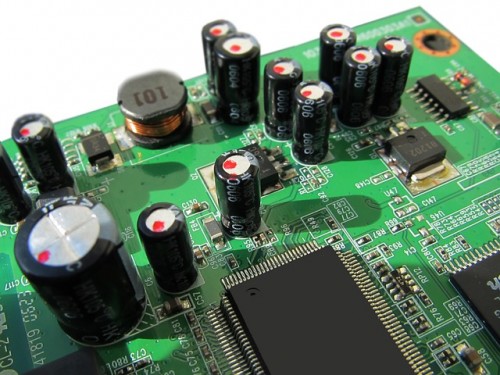Should you buy Semiconductor Manufacturing Int’l (ADR) (NYSE:SMI) after its newest deal with QUALCOMM, Inc. (NASDAQ:QCOM)? The giant Chinese chipmaker, also known as SMIC and its partners, QUALCOMM, Belgian research firm Imec, and Huawei Technologies, have just announced that they will form a new R&D company majority-owned by SMIC which will manufacture next-generation semiconductors. The deal comes after QUALCOMM was recently dealt a $975 million fine by the Chinese government for violating antimonopoly laws in China. The new joint venture is seen as a way for the American chip behemoth to appease Chinese regulators and continue doing business smoothly in the country. Also as a result of the new deal, SMIC is expected to cut costs in research and development and close the technology gap against rivals Intel Corporation (NASDAQ:INTC) and Taiwan Semiconductor Mfg. Co. Ltd. (ADR) (NYSE:TSM) in the production of chips that power mobile devices like smartphones and tablets. SMIC is still on the 28-nanometer (nm) process for chips while its rivals are two generations ahead at the 16nm and 14nm processes. SMIC, QUALCOMM, Inc. (NASDAQ:QCOM) and their partners expect the joint venture to lead to the mass production of 14nm chips by 2020, while rivals are expected to be making 10nm chips by that time. On the news, SMIC shares have jumped nearly 6%. Year-to-date, shares of the company have traded up by 31.75%. However, it should be noted that hedge funds tracked by Insider Monkey are bearish about Semiconductor Manufacturing Int’l (ADR) (NYSE:SMI). Let’s take a look at the data.

An everyday investor does not have the time or the required skill-set to carry out an in-depth analysis of equities and identify companies with the best future prospects like a fund with the knowledge and resources can. However, it is also not a good idea to pay the egregiously high fees that investment firms charge for their stock-picking expertise. Thus, a retail investor is better off to monkey the most popular stock picks among hedge funds by him or herself. But not just any picks, mind you. Our research has shown that a portfolio based on hedge funds’ top stock picks (which are invariably comprised entirely of large-cap companies) falls considerably short of a portfolio based on their best small-cap stock picks. The most popular large-cap stocks among hedge funds underperformed the market by an average of seven basis points per month in our back tests whereas the 15 most popular small-cap stock picks among hedge funds outperformed the market by nearly a percentage point per month over the same period between 1999 and 2012. Since officially launching our small-cap strategy in August 2012 it has performed just as predicted, beating the market by over 84 percentage points and returning over 142%, while hedge funds themselves have collectively underperformed the market (read the details here).
We track hedge fund and insider activity in companies because these transactions lend themselves to better understanding, whether of the world’s top money managers or of the top executives of a firm, and their confidence about a particular company tends to bode well for that company’s future performance. For insider sentiment on SMIC, there were no reported changes based on data from Insider Monkey, and thus we can consider insider activity to be neutral.
With this in mind, let us look at how hedge funds have been trading Semiconductor Manufacturing Int’l (ADR) (NYSE:SMI) of late.





